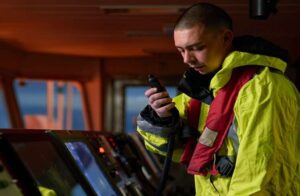

Acute medical circumstances check with these diseases or accidents that come on out of the blue and require speedy medical consideration to stop additional problems and even dying. So, when an individual visits a healthcare facility with an acute medical situation, you will need to present speedy prognosis and therapy. That’s the place acute care practitioners come into the image.
An acute care nurse practitioner (ACNP) is accountable for offering sufferers with well timed and efficient care in order that there aren’t any problems or life-threatening emergencies. Acute care nurses work in quite a few healthcare settings, together with ERs, pressing care clinics and intensive care models.
A registered nurse who desires to specialize as an acute care nurse ought to know the function they are going to play in diagnosing and treating acute medical circumstances in older adolescents and adults. That may allow them to get a greater understanding of their function as an ACNP and decide whether or not that is the proper profession alternative for them.
Roles and tasks of an acute care nurse
Here’s a peek into the completely different tasks of acute care nurses when diagnosing and treating sufferers with acute medical circumstances:
Affected person evaluation
One of many main tasks of an ACNP is to evaluate and diagnose acute medical circumstances. When a affected person visits them, they’ve to notice down the whole medical historical past of the affected person. As well as, they should carry out a bodily examination and consider the affected person’s important indicators. It’s prudent to do not forget that some circumstances, like cardiovascular illnesses and diabetes, can run in households or happen as a result of life-style habits. So, an ACNP ought to inquire concerning the affected person’s household medical historical past in addition to their life-style, together with train, weight loss program and sleeping habits.
The ACNP should be capable of acknowledge the indicators and signs of acute medical circumstances and differentiate them from different circumstances that will current with comparable signs. For instance, chest ache could also be a symptom of a coronary heart assault or a pulmonary embolism, nevertheless it may be brought on by a musculoskeletal harm or gastroesophageal reflux illness (GERD). An acute care nurse should be capable of distinguish between these completely different circumstances and supply applicable therapy.
Ordering and deciphering diagnostic checks
After figuring out the medical situation, an ACNP should order diagnostic checks resembling blood checks, imaging research and electrocardiograms (ECGs). When the outcomes come out, they need to have the abilities and experience to interpret these checks. These diagnostic checks allow them to determine the underlying causes of the affected person’s signs and decide essentially the most applicable therapy plan.
The ACNP ought to have a radical understanding of the indications, limitations and interpretation of diagnostic checks, which can allow them to make an correct prognosis. Misinterpretation of take a look at outcomes can result in delayed therapy or inappropriate therapy. This might have critical penalties for the affected person.
Growing and implementing therapy plans
As soon as the ACNP makes the prognosis, it’s time to develop and implement the therapy plan. This plan might contain pharmacological and non-pharmacological interventions, like drugs, oxygen remedy and mechanical air flow.
The ACNP ought to have a radical understanding of the pharmacology of the drugs used within the therapy of acute medical circumstances. Additionally, they need to be aware of the suitable dosages, indications, contraindications and opposed results of the drugs they prescribe to sufferers. In some instances, they might must administer drugs through intravenous, intramuscular or subcutaneous routes. These strategies of administration require specialised coaching and experience.
Managing acute ache
Many sufferers with acute medical circumstances might expertise ache and therefore, require efficient ache administration. Ache generally is a debilitating symptom and may intervene with the affected person’s capability to operate and get well. So, the ACNP must have a radical understanding of the various kinds of ache and essentially the most applicable therapy modalities for every sort.
When managing ache, the ACNP has the choice of utilizing drugs like opioids and non-steroidal anti-inflammatory medication or selecting non-pharmacological interventions, resembling warmth remedy, therapeutic massage or leisure strategies. The selection will rely upon the severity of the ache and the situation of the affected person.
Monitoring the affected person’s progress
Sufferers with acute medical circumstances require steady monitoring. Monitoring exhibits whether or not the therapy plan is the proper one. If sure, it ought to be efficient in minimizing signs and serving to the affected person get well.
When monitoring the affected person, the ACNP recurrently assesses their important indicators, signs and response to the therapy. They need to be alert to acknowledge indicators of problems or opposed reactions to drugs in order that they will take applicable measures.
Performing procedures
Many occasions, an acute care nurse practitioner has to carry out a process to deal with or save a affected person’s life. This will likely embrace inserting a central line or putting a chest tube.
The ACNP ought to have the required expertise and coaching to carry out these procedures safely and successfully. Moreover, they need to additionally be capable of acknowledge and handle any problems that will come up throughout or after the process.
Collaborating with different healthcare professionals
Working as an acute care nurse requires collaboration with different healthcare professionals, like specialists, docs, nurses and pharmacists. This ensures that the affected person receives complete and coordinated care.
When working in a crew, ACNPs should make sure that they will talk successfully with different members of the crew so that every one concerned obtain well timed and correct details about the affected person’s situation and therapy.
Educating and counseling sufferers
The accountability of an acute care nurse doesn’t cease with diagnosing and treating a affected person. In addition they must counsel and educate sufferers to take higher care of themselves in order that they don’t endure from one other acute medical situation sooner or later.
So, they’ve to clarify to sufferers in layman’s phrases their medical situation and how one can handle their remedy. As well as, they might should recommend life-style adjustments in order that they deal with their weight loss program and train.
Some widespread acute medical circumstances
As an individual ages, acute medical circumstances can have an effect on any a part of the physique and will have various levels of severity. A number of the most typical acute medical circumstances embrace:
Cardiovascular emergencies
Cardiovascular emergencies, resembling acute myocardial infarction (coronary heart assault) and stroke, require speedy prognosis and therapy to stop additional injury to the center or mind. Therapy might contain administering drugs, resembling thrombolytic and antiplatelet brokers, or surgical procedures like angioplasty and stenting.
Respiratory emergencies
These emergencies can embrace circumstances like pneumonia, pulmonary embolism, and acute exacerbation of obstructive lung illness. These respiratory circumstances might be life-threatening and therefore require immediate therapy, which might be oxygen remedy, bronchodilators and mechanical air flow.
Neurological emergencies
Emergencies, like seizures and head accidents, require immediate prognosis and therapy as they may end up in mind injury. ACNPs might must administer antiseizure drugs or analgesics to deal with these circumstances.
Gastrointestinal emergencies
Circumstances like acute pancreatitis and gastrointestinal bleeding could cause extreme ache and lead to doubtlessly life-threatening problems. Therapy can embrace drugs like proton pump inhibitors and antibiotics, or procedures resembling endoscopy and surgical procedure.
Infectious illnesses
Many infectious illnesses like sepsis and meningitis, can quickly progress. Therefore, sufferers with these illnesses require early and immediate prognosis and therapy because it minimizes the possibilities of septic shock and organ failure. Therapy often contains antibiotics and antivirals.
Trauma and accidents
Traumatic accidents like fractures and burns require speedy evaluation and therapy. This prevents additional injury and promotes therapeutic. Therapy might be administering antibiotics and painkillers, offering wound care, or performing surgical procedure to repair the issue.
Prognosis and therapy of acute medical circumstances
Acute care nurses learn to diagnose and deal with sufferers throughout their coaching and grasp it with the assistance of hands-on follow. A number of the ways in which these nursing professionals diagnose in addition to deal with sufferers with acute well being circumstances are as follows:
Evaluation and triage
These are important elements of the prognosis and therapy of acute medical circumstances. An ACNP should rapidly assess the affected person’s situation and prioritize therapy based mostly on the severity of the situation. This could imply utilizing standardized triage instruments, such because the Manchester Triage System or the Emergency Severity Index (ESI) to find out the extent of urgency.
Diagnostic checks and procedures
These are important in diagnosing and treating acute medical circumstances. ACNPs should be capable of choose the suitable checks and procedures based mostly on the affected person’s signs and medical historical past. This will likely contain ordering blood checks, imaging research or different diagnostic checks like lumbar puncture or electroencephalogram (EEG).
Pharmacological interventions
Medicines are sometimes vital for the therapy of acute medical circumstances. An ACNP have to be educated concerning the applicable drugs for every situation in addition to having the data and understanding of various dosages, unintended effects and potential interactions with different drugs. They might should administer remedy intravenously, orally or through inhalation. The route of administration will rely upon the situation of the affected person.
Non-pharmacological therapies
Generally, in addition to drugs, a affected person might also require non-pharmacological interventions, resembling oxygen remedy and mechanical air flow. The ACNP ought to be capable of select the proper intervention based mostly on the affected person’s situation and response to therapy.
Surgical interventions
These interventions could also be vital for sure acute medical circumstances, resembling trauma and gastrointestinal emergencies. An acute care nurse should be capable of acknowledge the necessity for surgical procedure and refer the affected person to a surgical specialist with out losing time if the necessity arises.
Group-based care
Invariably, an acute care nurse doesn’t work alone when diagnosing and treating acute medical circumstances. They usually work with interdisciplinary groups to supply complete team-based care. Therefore, an ACNP ought to be capable of work successfully with different healthcare professionals, resembling physicians, nurses and therapists, to supply coordinated and all-around affected person care.
Managing full affected person care
It’s an ACNP’s elementary accountability to handle affected person care. Normally, they are going to be accountable for the affected person from the time they get admitted till they’re discharged. Throughout this era, they want to make sure that the affected person receives the proper therapy. For this, they’ve to observe every affected person rigorously and regulate their therapy plan based mostly on the response or adjustments of their situation.
As part of affected person care, acute care nurses additionally talk with relations and caregivers to maintain them knowledgeable concerning the affected person’s progress and adjustments to the therapy plan.
Sustaining scientific competence
As an acute care nurse, you will need to keep updated with the newest advances in acute care drugs. This implies taking part in coaching applications, seminars and conferences to study new therapy modalities and rising infectious illnesses.
Adhering to moral requirements
An acute care nurse ought to adjust to moral ideas and cling to nursing values. Not solely ought to they respect their affected person’s autonomy however they need to even be aware of the legal guidelines and laws that govern acute care nursing. This contains sustaining privateness and confidentiality, understanding knowledgeable consent and sustaining seamless documentation.
Sustaining professionalism
Whereas it’s simple to get emotional and connected to sufferers, an acute care practitioner ought to all the time exhibit skilled conduct at work and out of doors. They have to not solely be accountable but in addition reveal integrity and respect for sufferers and colleagues. Whereas their work can be tense, they have to be taught to handle their stress ranges and feelings in order that they’re all the time calm and composed in high-pressure conditions.
Rehabilitation and follow-up care
Many sufferers affected by acute medical circumstances might require rehabilitation. ACNPs should be capable of present applicable referrals for rehabilitation companies, resembling bodily remedy and occupational remedy. Their accountability doesn’t finish there, as they have to present applicable follow-up care. This could embrace managing drugs and monitoring the affected person for attainable problems.
Challenges and moral concerns in acute care follow
Acute care follow might be difficult because of the fast-paced nature of the work and the complexity of the circumstances that sufferers have. ACNPs additionally must account for moral concerns when diagnosing and treating sufferers with acute medical circumstances.
Time constraints and workload
Acute care practitioners usually face time constraints and heavy workloads. This could make it troublesome to supply complete and coordinated care. An ACNP ought to be capable of handle time successfully and prioritize duties based mostly on the affected person’s situation and urgency.
Useful resource allocation and cost-effectiveness
When working in any healthcare setting, ACNPs must take into account useful resource allocation and cost-effectiveness within the prognosis and therapy of acute medical circumstances. They need to be capable of stability the necessity for optimum care with the accessible assets. Generally, they are going to be pressured to make troublesome selections about useful resource allocation and figuring out essentially the most cost-effective therapy choices.
Affected person autonomy and knowledgeable consent
ACNPs should totally inform sufferers about their well being situation and the completely different therapy choices. They clarify the professionals and cons of every therapy in order that the affected person could make an knowledgeable choice. When a affected person decides, it’s best to respect their choice somewhat than attempt to change their thoughts. That’s very true when the affected person is alert sufficient to resolve about their therapy and care.
Finish-of-life care
Finish-of-life care and choice making might be difficult, particularly when the affected person’s situation is quickly deteriorating. Ought to this occur, the ACNP ought to present compassionate care not simply to the affected person but in addition to their relations. On the identical time, they should respect the affected person’s needs concerning end-of-life care.
Cultural and social variety
In a rustic just like the US, ACNPs will come throughout sufferers from various cultures and walks of life, so you will need to present culturally delicate care to sufferers from various backgrounds. In addition they should perceive how social elements, resembling poverty and homelessness, can affect a affected person’s well being and entry to care.
Schooling and coaching for acute care nurse practitioners
Acute care nurse practitioners will need to have in depth schooling and coaching to successfully diagnose and deal with acute medical circumstances. This will likely contain finishing a level program in nursing, drugs, or one other healthcare occupation, in addition to finishing specialised coaching in acute care.
A registered nurse with a bachelor’s diploma in nursing can grow to be an acute care nurse by finishing a qualification, such because the on-line MSN-AGACNP diploma by Rockhurst College. This grasp’s diploma coursework is totally on-line with one campus immersion and is designed to be accessible, to assist nurses enter the specialised world of acute care and not using a downside.
Nevertheless, after changing into an acute care nurse, one can’t relaxation as this subject always evolves and adjustments. That’s the reason ACNPs additionally must deal with ongoing schooling {and professional} growth. This may be accomplished by attending conferences and workshops, finishing on-line programs or taking part in scientific rotations. When acute care practitioners do that, it allows them to remain updated with the newest advances in acute care follow.
Certification and licensure
Acute care nurses should keep certification and licensure to follow of their subject. This will likely contain finishing persevering with schooling necessities and passing a certification examination by organizations such because the American Affiliation of Important-Care Nurses (AACN). As soon as licensed, they will get a license from their state of residence to grow to be a sophisticated follow registered nurse and work as an acute care nurse practitioner.
Job outlook
These interested by changing into an acute care nurse will need to know what the longer term holds for them and whether or not it’s worthwhile to specialize on this subject.
The longer term is sort of vibrant for nurses in acute care. The US Bureau of Labor Statistics (BLS) tasks that the demand for registered nurses from 2021 to 2031 will develop by 6%. Over these 10 years, round 200,000 openings can be accessible.


